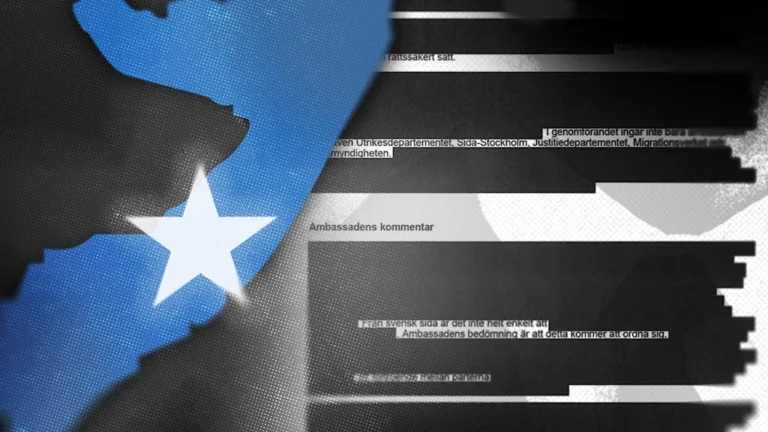MOGADISHU, Somalia — Sweden redirected 100 million kronor from foreign aid to Somalia in return for accepting citizens deported from Sweden, Ekot reported.
The secret agreement was signed in December 2023. Deportations to Somalia rose sharply afterward, reaching 28 people so far in 2024.
Sources said Somalia demanded aid be channeled through Prime Minister Hamza Abdi Barre’s office, bypassing Sweden’s usual aid distribution practices and oversight mechanisms.
Swedish officials reportedly agreed to the condition, and both governments committed to keeping the deal confidential, according to documents and interviews reviewed by Ekot.
Sweden’s first payment of 40 million kronor was made in early 2024. The remaining 60 million followed during the summer months.
Funds were allocated through a joint project involving the Somali prime minister’s office and the United Nations Development Programme, according to Swedish public radio.
Somalia ranks second to last on Transparency International’s corruption index, raising concerns inside Sweden’s international aid agency, Sida, over possible misuse.
“The corruption risk is obvious,” said Wilo Abdulle Osman, a veteran in Somalia’s return migration efforts who reviewed the agreement with colleagues.
Independent aid experts reviewed the initiative and labeled it high-risk, citing vague objectives and a lack of measurable indicators for progress.
“The goals are broad,” said Mats Hårsmar, deputy head of Sweden’s Expert Group for Aid Studies. “There’s no clear way to measure success.”
Minister for International Development Cooperation Benjamin Dousa said the government tied aid to migration to boost returns. Sida oversees how aid is implemented.
Sida declined comment but said the government made the decision to route funding through the United Nations Development Programme for this project.
Internal Sida sources said they would not have prioritized this project without direct orders from Sweden’s political leadership, according to Ekot’s investigation.
“It’s the prime minister’s office being strengthened,” Hårsmar said. “But we don’t know how, or what outcomes are expected from that.”
When asked if he would have approved the funding, Hårsmar answered bluntly: “No, I would not have.”
The Somali prime minister’s office did not respond to Ekot’s request for comment regarding the terms or administration of the aid project.
UNDP said the project follows its usual procedures for oversight and implementation to ensure transparency, effectiveness, and accountability of development funds.
